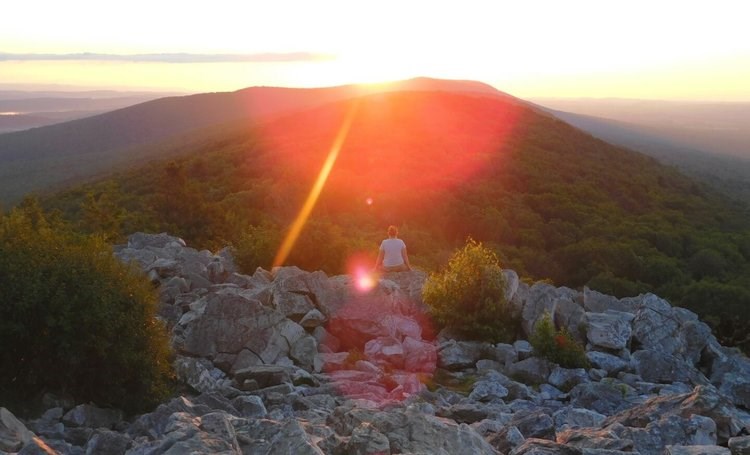Molded by the Mountain
Posted on in On the Mountain by Adehl Schwaderer, former conservation trainee
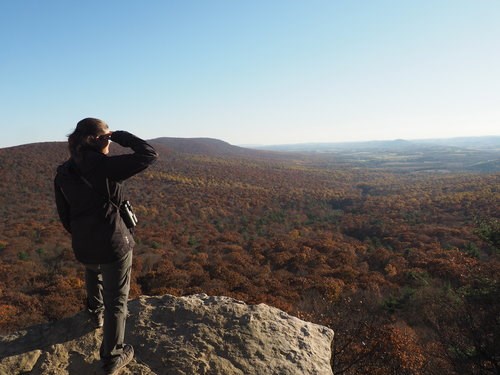
When I am interpreting or teaching about wildlife, people often ask me a lot of difficult questions. Out of all the questions I have been asked, the ones that I find hardest to explain are why I know so much about the natural world, how I became interested in birds (of all things), and how I found out about a career in environmental conservation. These are difficult questions to answer because I do not have one clear, summarized response. Who I am today and how I got to where I am now was shaped by every experience I have had leading up to this point in my life, including my time at Hawk Mountain Sanctuary. So, when someone asks me this, I wish I could paint a picture of all the people and places that have shaped who I am. Now, I finally have the chance!
I first found out about Hawk Mountain as a junior at Robert Morris University, and I jumped at the chance to spend the summer working for the education department. I applied for the Heuer Education Intern position, and that experience opened my eyes to the world of avian conservation, molded my professional direction, and changed the way I view my own potential.
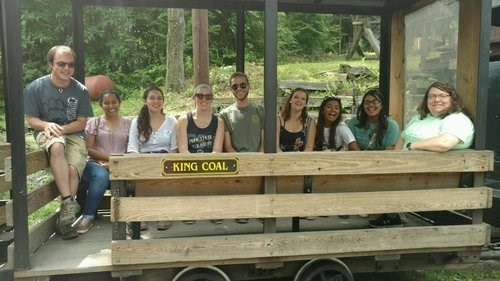
Before starting my internship, I was very apprehensive. It was my first time traveling to a completely new place to work, and I had very little knowledge about raptor conservation. Thankfully, none of my worst fears came to fruition. Within my first week of working for Erin Brown, HMS Education Director, I felt settled into my new position, comfortable in the trainee residence, and had many exciting goals to conquer over the next four months. I spent the summer leading educational programs and guided hikes, collaborating with the conservation scientists to create educational videos about their projects for classroom use, and also had the opportunity to learn the basics of raptor care. That summer I also spent time with international trainees and college research interns from all over the United States. We were living, working, and spending free time together and became close friends as a result. I learned so much about different cultures, environmental conservation in different parts of the world, and was able to see how having an open mind can allow you to learn new things about others and yourself.
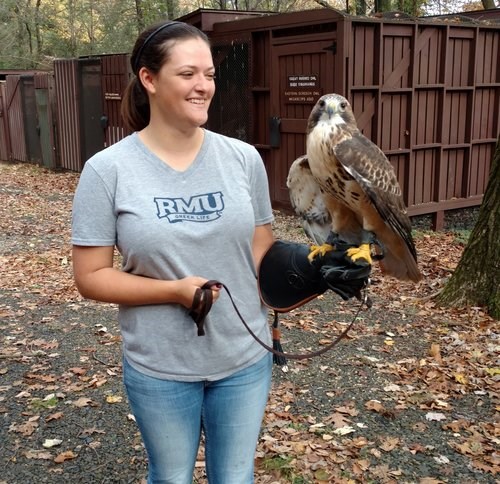
My time as a member of the education team taught me numerous skills required to be an effective team player, and I learned firsthand that enthusiasm and drive outweigh nervousness and self-doubt. I followed their example, and when I felt nervous about leading a program or unsure of a decision I was making, I would let my excitement and passion shine through to ease my mind.
This support and insight was what pushed me to continue to work towards becoming a better educator. From the moment I arrived at Hawk Mountain, Erin made me feel welcomed, helped me navigate my new role as an intern, and was genuinely excited to add me to the team. She would go out of her way to expose me to new experiences, include me in decisions, and listen to each idea and suggestion I had. Her trust and encouragement helped me challenge what I thought I was truly capable of as an educator.
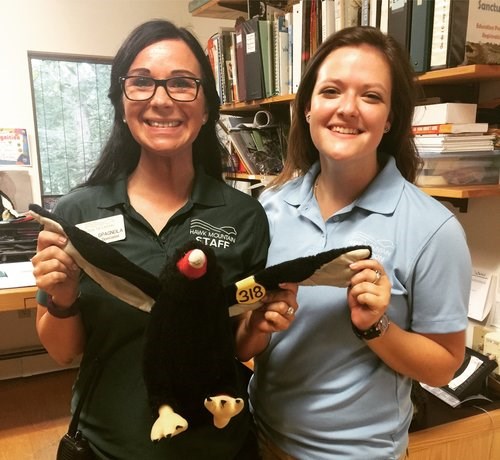
Rachel Taras, Senior Educator at HMS, is one of the most positive, enthusiastic educators I know! Before her, I didn’t know it was okay to let your audience know how excited you were about the topic you were explaining. When making decisions, she thinks critically about the situation so that the outcome is positive and beneficial for everyone involved. She helped me understand that open communication and following through with responsibilities is essential for the health of the birds and her patience and thorough training allowed me to complete raptor care tasks with ease. Being Rachel’s mentee boosted my confidence and taught me how to greet every obstacle with a smile.
Adam Carter, another HMS educator, showed me how to use my powers of observation to engage my audience. If I knew my audience’s interests, I could go off script and give them the best experience by tailoring my focus. He encouraged me to let people know who I was and reminded me that I had too many important things to say to be worried about other people's perceptions of me. “Normal is boring, Adehl!” His words of reassurance really helped me, and I continue to remember them when I feel unsure of myself.
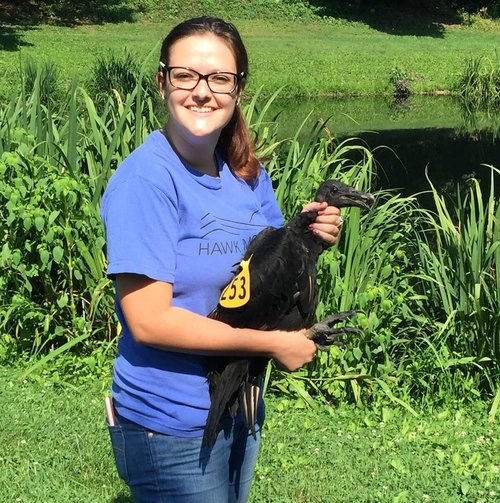
I loved my first experience at HMS so much that I couldn't resist returning to the Mountain, this time as a conservation science trainee. This allowed me to dive into the research side of avian conservation. From helping Dr. JF Therrien in the field banding American Kestrels, watching Dr. Laurie Goodrich and her team attach satellite telemetry units onto broad-winged hawks, and having the opportunity to hold a black vulture with David Barber, all of these moments sparked my interest in pursuing more opportunities in raptor research. Learning the importance of the big picture when considering a research idea or conservation issue from Dr. Keith Bildstein allowed me to feel more capable in future research opportunities. All of the scientists were supportive, engaging, and helped make my first research experience an influential one.
It took these people saying yes, giving me guidance and room to grow, to help me realize my true potential. My experiences on the Mountain painted a clear picture of the type of organization I wanted to work for in the future, helped me understand my professional goals, and allowed me to connect with people from different backgrounds through raptor biology. I gained the confidence to pursue a career I love and the knowledge to be an effective teacher and researcher. Without this foundation, I would not be the naturalist, educator, or scientist that I am today.
